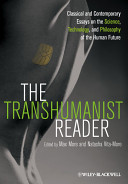Can Identity Survive a 200-Year Lifespan?
Walter Glannon has argued that a lifespan of 200 years or more would be undesirable because personal identity could not be persevered over such a long life (Glannon 2002). Glannon’s argument presupposes that personal identity (understood here as a determinant of our prudential concerns) depends on psychological connectedness. On this view, we now have prudential interests in a future time segment of our organism only if that future time segment is psychologically connected to the organism’s present time segment through links of backward-looking memories and forward-looking projects and intentions. If a future time segment of my brain will not remember anything about what things are like for me now, and if I now have no projects or intentions that extend that far into the future, then that future time segment is not part of my person. Glannon asserts that these psychological connections that hold us together as persons could not extend over 200 years or so.
There are several problems with Glannon’s argument, even if we accept his metaphysics of personal identity. There is no reason to think it impossible to have intentions and projects that range over more than 200 years. This would seem possible even with our current human capacities. For example, I can easily conceive of exciting intellectual and practical projects that may take me many hundreds of years to complete. It is also dubious to assume that a healthy future self several hundred years older than I am now might would be unable remember things from current life stage. Old people often remember their early adulthood quite well, and it is not clear that these memories always decline significantly over time. And of course, the concern about distant future stages being unable to remember their earlier stages disappears completely if we suppose that enhancements of memory capacity become available.24 Furthermore, if Glannon was right, it would follow that it is “undesirable” for a small child to grow up, since adults do not remember what it was like to be a small child and since small children do not have projects or intentions that extend over time spans as long as decades. This implication would be counterintuitive. It is more plausible that it can be desirable for an agent to survive and continue to develop, rather than to die, even if psychological connections eventually become attenuated. In the same way, it could be desirable for us to acquire the capacity to have a posthuman healthy lifespan, even if we could not remain the same person over time scales of several centuries.
Notes:
From Nick Bostrom's "Why I Want to be a Posthuman When I Grow Up"
Folksonomies: identity lifespan transhumanism
Taxonomies:
/business and industrial/advertising and marketing/marketing (0.569425)
/health and fitness/disorders (0.535115)
/society/crime/property crime/larceny (0.524706)
Keywords:
future time segment (0.989216 (negative:-0.348739)), personal identity (0.705355 (positive:0.413049)), present time segment (0.603356 (neutral:0.000000)), posthuman healthy lifespan (0.574927 (positive:0.587831)), psychological connections (0.561627 (positive:0.273571)), current human capacities (0.543692 (negative:-0.324771)), healthy future self (0.529239 (negative:-0.710534)), distant future stages (0.524737 (negative:-0.394140)), current life stage (0.522570 (negative:-0.710534)), 200-Year Lifespan (0.506278 (positive:0.500890)), small child (0.503227 (neutral:0.000000)), unable remember (0.470201 (negative:-0.710534)), intentions (0.459496 (negative:-0.580973)), Nick Bostrom (0.456494 (neutral:0.000000)), prudential interests (0.455155 (neutral:0.000000)), argument presupposes (0.454709 (positive:0.413049)), psychological connectedness (0.454214 (positive:0.565361)), prudential concerns (0.454005 (positive:0.471112)), Walter Glannon (0.446706 (neutral:0.000000)), forward-looking projects (0.446193 (neutral:0.000000)), backward-looking memories (0.436167 (neutral:0.000000)), Glannon’s argument (0.435796 (neutral:0.000000)), early adulthood (0.431430 (neutral:0.000000)), practical projects (0.427461 (positive:0.751150)), time spans (0.426851 (neutral:0.000000)), Old people (0.426179 (neutral:0.000000)), time scales (0.423615 (neutral:0.000000)), memory capacity (0.422948 (negative:-0.394140)), earlier stages (0.421668 (negative:-0.394140))
Entities:
Walter Glannon:Person (0.916760 (positive:0.575036)), Nick Bostrom:Person (0.450185 (negative:-0.299592)), 200 years:Quantity (0.450185 (neutral:0.000000)), hundred years:Quantity (0.450185 (neutral:0.000000)), 200-Year:Quantity (0.450185 (neutral:0.000000))
Concepts:
Future (0.963047): dbpedia | freebase
Time (0.961822): dbpedia | freebase | opencyc
Present (0.892294): dbpedia | freebase | opencyc
Past (0.845419): dbpedia | freebase
Psychology (0.821203): dbpedia | freebase | opencyc
Personality psychology (0.717557): dbpedia | freebase | yago
Mind (0.665229): dbpedia | freebase | opencyc
Cognition (0.628730): dbpedia | freebase | opencyc





